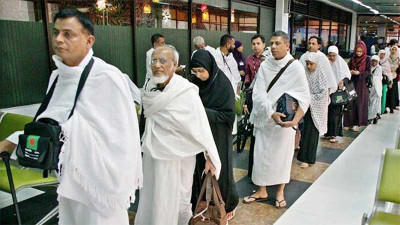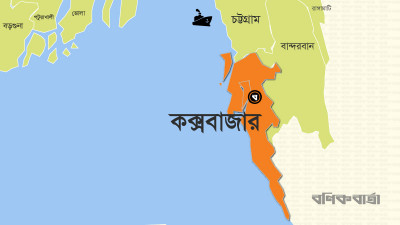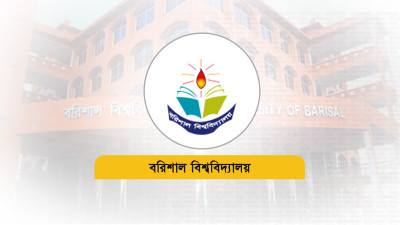 Photo: collected
Photo: collected With
a bare minimum salary of just Tk 4,000, Rabiul (not real name) often struggles
to make ends meet. He works at an upbeat restaurant in Mirpur Benarasi Palli.
This 35-year-old young man’s ability to send money home monthly depends on the
tips he receives from the restaurant’s customers.
The
story is almost the same for hotel and restaurant workers all over the country.
In the private sector, hotel and restaurant workers have the lowest wages. The
government has set its minimum wage at Tk 3,710, equivalent to 31 dollars and
44 cents (118 Taka per dollar). According to the Ministry of Labour and
Employment, this minimum wage for hotel and restaurant workers was set by a
government-formed board and announced in March 2017. Since then, there have
been no efforts to review or reassess their wages and allowances.
Based
on the government-set wage, a hotel and restaurant worker’s minimum annual
salary stands at Tk 44,520, equivalent to 377 dollars and 29 cents at the
current exchange rate. In line with the World Bank’s 2022 criteria, anyone
earning less than 2 dollars and 15 cents a day is considered living below the
poverty line. The minimum daily wage for hotel and restaurant workers in
Bangladesh, based on the set minimum wage, amounts to approximately 1 dollar
and 3 cents.
According
to the Ministry of Labour and Employment, based on the Labour Act 2006, the
government can declare a minimum wage for various sectors every five years. The
ministry has set and revised minimum wage rates in 43 industrial sectors to
date, with 33 wage structures announced in the past 10 years. Experts say these
wage structures are outdated considering the country’s inflation rate. Workers
in various sectors are struggling with their livelihoods, facing uncertainties
about their families and future due to these wages.
Currently,
the highest minimum monthly wage is set for sawmills, and the lowest for the
hotel and restaurant sector. In June 2022, the minimum wage for sawmill workers
was set at Tk 17,900, equivalent to 151 dollars and 69 cents.
Rajat
Biswas, the general secretary of the Bangladesh Saw Mill Workers Federation,
told Bonik Barta, "The new wage structure for the sawmill sector was
announced in 2022. However, considering current prices and inflation, it is
very low. We are discussing allowances to adjust for inflation. The announced
wage structure is not implemented everywhere. It is effective in major cities
like Dhaka but not in rural areas. Workers face significant insecurity in their
workplaces, with 60 percent suffering from various injuries and losses."
After
Rajat Biswas, we talked to Matiur Rahman, a sawmill worker in Sreemangal. He
currently works for Tk 13,000 per month, although his salary should be Tk
17,900 according to the government-set wage structure.
Matiur
Rahman told Bonik Barta, "The owner pays me Tk 13,000 a month. Sometimes,
the company provides snacks, and I receive some tips. However, I am not
receiving the government-set wage. We are in discussions with the mill owner to
increase the salary."
After
sawmills, the next highest minimum wage in the private sector is for
construction and woodworkers, set at Tk 16,240 (137 dollars and 62 cents). In
the shipbreaking industry, the minimum wage for workers is Tk 16,000 (135
dollars and 60 cents), while employees receive Tk 15,100 (about 128 dollars).
Tapan
Dutta, the convener of the Shipbreaking Workers Trade Union, told Bonik Barta,
"When the Bangladesh Wage Board set the minimum wage for the shipbreaking
industry at Tk 16,000 for 8 hours, it was not too low. There was also a law for
a maximum of 12 hours of overtime per week. But yard owners did not implement
the wage or follow the labor laws."
According
to the Ministry of Labour and Employment, among the sectors with the highest
minimum wages, rubber industry workers and employees have a set minimum wage of
Tk 12,910. In the garment industry, the minimum wage for workers is Tk 12,500,
while for employees it is Tk 12,800.
International
Labour Organization (ILO) in their latest report said, Bangladesh has the
lowest minimum wage in the Asia-Pacific region. Additionally, it is the only
country in the region where sector-specific minimum wages are below the
international poverty line.
Among
sectors with the lowest minimum wages, after hotels and restaurants, are
tailoring factories, match factories, automobile workshops, bakeries, biscuits,
and confectionery industries. Workers and employees in tailoring factories
receive Tk 4,850, equivalent to 41 dollars and 10 cents. Match factory workers
receive Tk 4,560 (38 dollars and 64 cents). Automobile workshop workers and
employees receive Tk 5,930 (50 dollars and 25 cents) and Tk 7,610 (64 dollars
and 49 cents), respectively. Workers and employees in bakeries, biscuits, and
confectionery industries receive Tk 5,940 (50 dollars and 33 cents) and Tk
6,500 (55 dollars and 8 cents), respectively.
Additionally,
in the bidi industry, workers are paid Tk 45 per thousand regular bidis and Tk
90 for filter bidis. Tea garden workers are paid daily, with a minimum daily
wage of Tk 170 (1 dollar and 44 cents). Employees in tea gardens receive a
monthly wage, with a minimum set at Tk 10,020 (84 dollars and 91 cents).
Labor
leaders argue that neither the highest nor the lowest wages in the private
sector are sufficient for workers to lead a dignified life. This wage structure
does not meet the needs of workers and employees. There is an urgent need for a
national minimum wage structure.
Taslima
Akhter, president of the Garment Workers Solidarity, told Bonik Barta,
"Although Bangladesh has transitioned from a low-middle-income country to
a middle-income country, ordinary people are not benefiting from it. The most
deprived are the workers and employees. Yet these workers are contributing
daily to the development of Bangladesh. The main obstacle here is the wage
structure. The wages mentioned in this structure do not allow a worker to lead
a dignified life. Despite the sustainable sector created by garment workers’
labor, they are not receiving dignified wages. The wages of other sectors are
also not satisfactory. Meanwhile, the government continues to increase the
salaries of public officials. A national minimum wage structure is urgently
needed, and we must work collectively to achieve it."
When
asked about the overall situation, State Minister for Labour and Employment Md.
Nazrul Islam Chowdhury told Bonik Barta, "We are gradually making changes
to the entire labor law. We will pass the amended labor law in the next
parliamentary session, hopefully. We will make necessary changes to the labor
wage structure after careful consideration."







